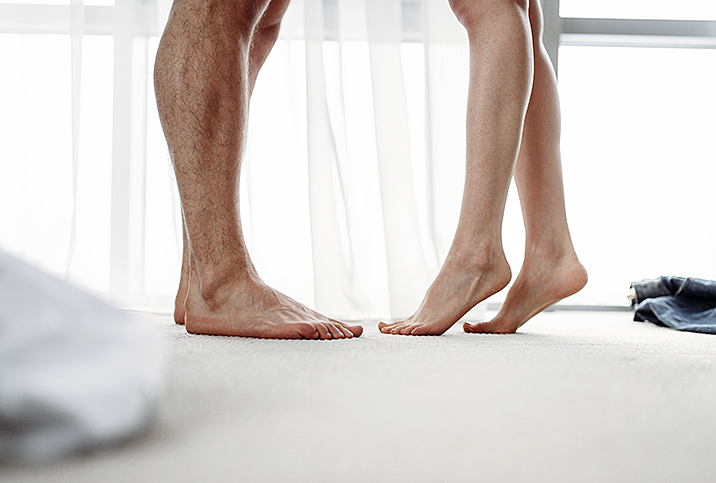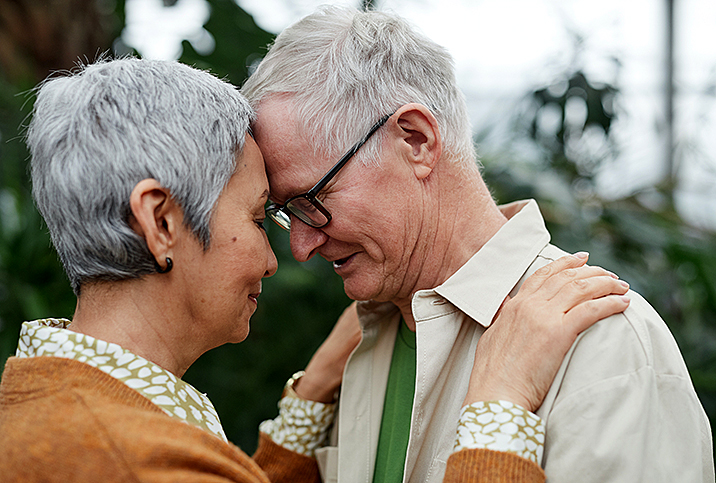The Changes to Come: How Reproductive Organs Age

While we tend to focus on how aging affects our outward appearance, no internal system is immune to the passage of time. The term "aging" doesn't only describe how long it's been since our first birthday. Depending on lifestyle factors, environment, genetics, stress levels and a host of other influences, our bodies "age" at different rates. Biologically speaking, aging for the reproductive system typically refers to the effects of hormonal shifts during different life stages.
Reproductive organs for men and women change as we get older. From childhood through puberty and beyond, we may be surprised by the way our hormones and sex organs morph as the years pass by. Familiarizing yourself with basic biology can help you cope with and anticipate the stages to come.
Age-related female reproductive changes
While it's no secret biological female fertility declines with age, you may not be aware that the reasons behind this decline are multifaceted. Biologically speaking, peak fertility occurs between the late teens through the late 20s. By age 45, pregnancy is unlikely without medical assistance. Chromosomal abnormalities, low egg reserves and other health conditions contribute to infertility with age.
Perimenopause describes the hormonal changes of aging reproductive organs. During perimenopause, women may experience irregular menstruation and worse premenstrual symptoms than before. Perimenopause usually lasts about four years and ends when you enter menopause.
Menopause, defined as no periods for one year, usually occurs between the ages of 45 to 55. Symptoms may include:
- Breast tissue reductions
- Hot flashes
- Osteoporosis
- Short-term memory changes
- Urinary tract infections
- Vaginal dryness, irritation or yeast infections
Additionally, loss of tone in the pubic muscles, combined with other factors like a history of childbirth, can lead to prolapse. The vagina, uterus or bladder may be affected. Kegel exercises are one way to reduce the risk of prolapse, and surgical interventions can help those who develop this condition.
Age-related male reproductive changes
Biological males experience declines in reproductive ability with age, just as females do. The process is sometimes referred to as andropause. Some of the changes men can expect include:
- Prostate gland enlargement: Fifty percent of men experience delayed ejaculation and urination due to benign prostate hyperplasia (BPH).
- Semen parameter changes: The shape, viability, concentration and volume of sperm tend to decline with age, making it more challenging to produce healthy offspring.
- Testicular volume reduction: By age 75, the average man has a 31 percent reduction in testicular volume when compared to men between ages 18 and 40.
- Testosterone level decreases: Lower testosterone can lead to body composition changes, favoring fat gain and muscle loss. This can cause a decline in libido as well.
Preventive care is increasingly important as we get older. Screening for abnormal cells and sexual concerns provides greater options for early intervention. Since chronic conditions such as diabetes and high blood pressure contribute to erectile dysfunction, taking a holistic approach to your healthcare is essential in maintaining optimal sexual function.
Aging isn't as bad as it used to be
Assisted reproductive technology and a greater understanding of the body's aging process have vastly improved the experience of getting older. When it comes to producing offspring or continuing an active sex life, medical technology and changes in societal norms afford people with more options than ever before.
Perhaps the best way to ensure you age gracefully is through engaging in healthy lifestyle habits. Maintaining a healthy body weight, practicing safe sex, not smoking and staying physically active are some of the most basic, yet effective, ways to keep our reproductive organs from aging out before their time.
If you're dealing with the unwanted effects of reproductive aging, talk to your doctor about your options. Hormone therapy, surgery and prescription medications can help ease a range of issues. You can receive treatment for menopausal symptoms, incontinence, erectile dysfunction, low testosterone levels and other age-related problems to maintain your quality of life. Take charge of your reproductive health at every stage.


















